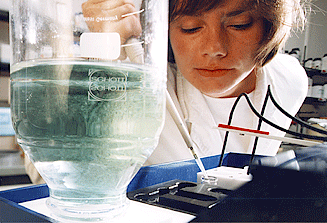Controlling Impurities and Additives

Certain substances that may be present in fuel, (impurities or deliberate additives) can directly interfere with emission controls devices, in some cases, permanently and these must be controlled, or eliminated.
The case of lead in gasoline is well known: in addition to its toxic effects as a pollutant, lead would contaminate and permanently damage catalytic converters and it has now been removed from gasoline in all but a few remaining countries.
Another common impurity in both gasoline and diesel is sulphur, which occurs naturally in crude oil, but can be removed during the refining process. Here again sulphur causes undesirable emissions – of sulphur dioxide and trioxide (which, combined with water, form sulphuric acid) and hydrogen sulphide (a poisonous gas with a characteristic – rotten eggs – smell). Sulphur also contaminates catalysts and is a problem for particulate filters and NOx traps. They can quickly become blocked by sulphur, which, at best, requires a special desulphurisation cycle to remove it, leading to higher emissions and fuel consumption, and at worst, can permanently damage the device.
Some countries now limit sulphur content or plan to do so (EU: now 50ppm and 10ppm by 2009; USA: now 80% at 15ppm, 100% by 2010; Japan now 50ppm) but levels as high as 3000ppm are still common in some countries.
Some fuel treatment additives, especially those containing metals, can lead to ash deposits in the exhaust which interfere with exhaust treatment devices and they can also cause build-up of deposits in the engine which change its performance. Careful control of these additives is important to achieve the right balance between their positive and negative effects.
Fuel Formulation
The formulation and content of an engine’s fuel obviously has a major effect on how the engine behaves and what comes out of the exhaust. The relative proportions of different substances in the fuel, whether they are natural constituents, impurities or deliberate additives, can have either a positive or a negative effect on performance and emissions so engine design has to be carefully adjusted to work best with the fuel formulation likely to be used. It is therefore very important that fuel formulation does not vary too far from that expected, as this will affect both driving performance and pollutant emissions.
Fuel specification becomes even more critical with the increasingly complex and sophisticated emission control equipment now fitted to vehicles. Each of these devices needs a high quality fuel with a predictable formulation so that it can be designed and calibrated to perform correctly.
Worldwide Fuel Charter
The Worldwide Fuel Charter was first established in 1998 to promote greater understanding of the fuel quality needs of motor vehicle technologies and to harmonise fuel quality world-wide in accordance with vehicle needs.It provides recommended fuel specifications for a range of grades of Gasoline and Diesel fuel for use with engines designed for different levels of emission control. It also provides a full explanation of the various aspects of fuel quality and their effects on vehicle emissions.It is developed and published by the World-Wide Fuel Charter Committee, made up of representatives of Auto Manufacturers from Europe (ACEA), the USA (AAM) and Japan (JAMA) and Engine Manufacturers (EMA), with associate members from most other countries where automobiles are manufactured, and with the support of OICA.
Download the Fifth Edition of the Worldwide Fuel Charter
